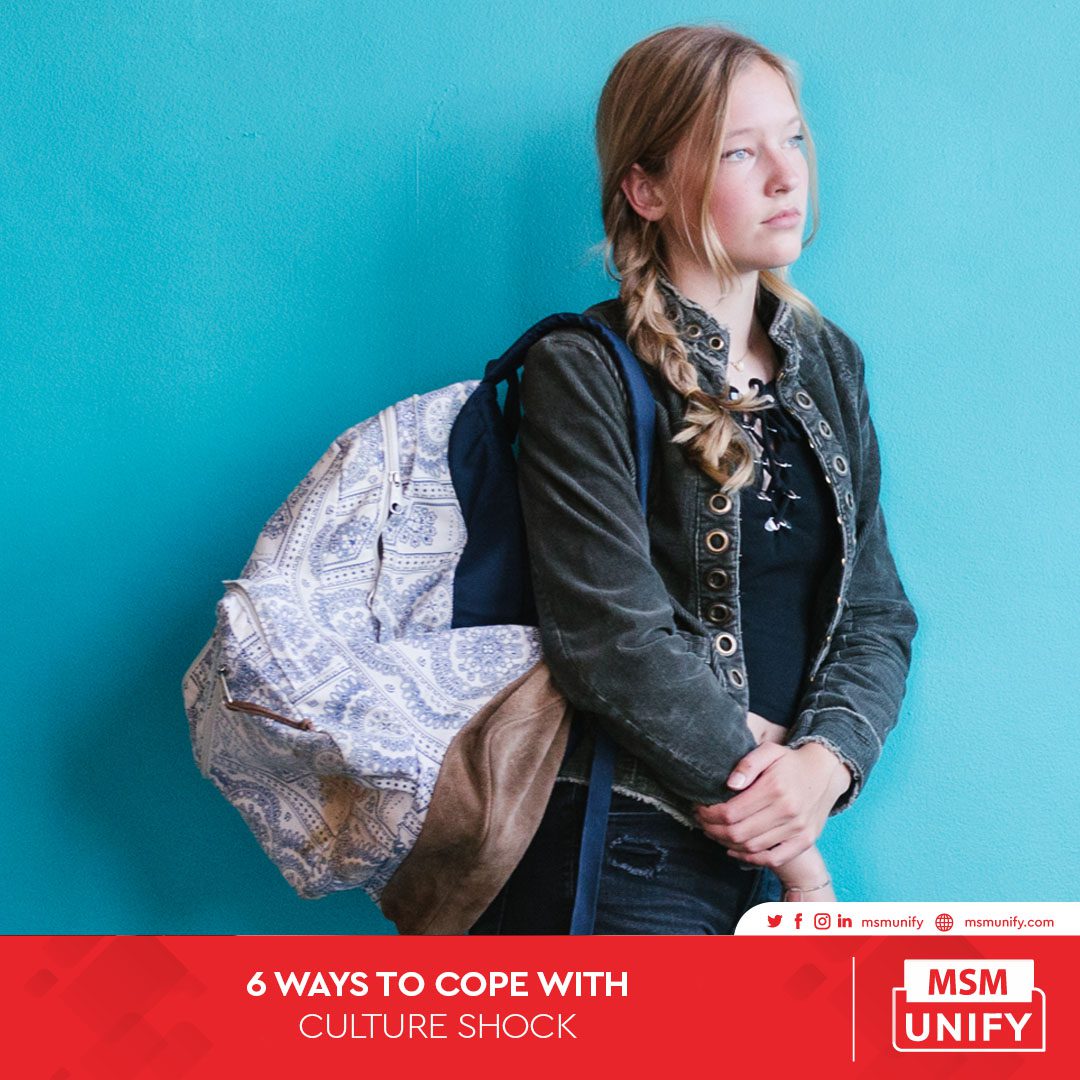You arrive in a new country and you’re met with an overwhelming sense of happiness. Your head buzzes with excitement and your heart thumps in extreme bliss. Your dream of studying abroad just came true, and you’re beaming with unmatched joy.
But then you’re bombarded with unfamiliar things, places, and customs. People in your new country have a different way of doing things. You have a hard time becoming accustomed to this way of life. You start longing for things you’re used to and long to go back home. You start feeling lost and begin to think that leaving your country is worth it.
What you’re experiencing is called culture shock, and it’s a very normal response to a sudden change in the environment. You pass through a range of emotions from excitement to frustration, and even deep depression at varying intensities.
Being in an unfamiliar place can be mentally and psychologically straining. It’s important to know you can handle, cope with, and overcome culture shock.
Before you learn the best ways to cope with culture shock, you must first get acquainted with its stages.
Stages of Culture Shock
Culture shock doesn’t arrive in one blow; it usually takes time before it sinks in. For first-time international students, the phenomenon is more palpable during the first 2 weeks or first month overseas.
You’ll go through various stages of culture shock while you’re away from home. The five stages of culture shock are:
- Honeymoon Stage – This stage is characterized by feelings of happiness, curiosity, excitement, and stimulation. You’ll normally experience this during the first few weeks of your stay overseas. Feeling intense joy is usually at an early stage.
- Distress Stage – This is when you have feelings of inferiority, isolation, and confusion. After the honeymoon stage, things will start sinking in. You’ll feel a bit homesick and yearn for the comforts of home.
- Reintegration Stage – At this stage, you develop a strong dislike for the culture, food, and language of the new environment and feel frustration, anger, and hostility. It’s a much stronger phase than the last as you’ll feel similar emotions with double the intensity.
- Autonomy Stage – This is the “emergence” stage, where you feel more confident and have better adaptability. You gain a more relaxed and balanced view. It will take a while to happen, especially if the reintegration stage is too tough. Remember to give yourself at least a couple of weeks to start feeling better.
- Independence Stage – This is the final stage where you become more positive and more comfortable in the new environment. You are able to enjoy more things and start to socialize. Of course, you’ll still feel homesick and lonely once in a while, but with a more positive perspective this time.
Symptoms of Culture Shock
Check yourself for culture shock symptoms so you can address the issue appropriately. You may not notice these signs immediately, but others might. If you encounter people who point these matters out to you, never shove them away.
Identifying symptoms of culture shock is necessary so you don’t suffer through a long process. Some symptoms of culture shock are:
- Boredom
- Withdrawal
- Intense feelings of negativity
- Excessive sleeping, eating, and drinking
- Isolation
- Fatigue
- Increased irritability
- Bodily pains
- Lack of concentration
Ways To Cope With Culture Shock
Accepting those adjustments takes time. Culture shock is normal, and recognizing that you’re feeling it will help you get through it. Sudden changes require some time before you can adjust, and there should be no guilt or shame in admitting that to yourself.
Take things slowly and don’t punish yourself for not adjusting fast. Breathe in, breathe out, and relax in every stage. Never limit yourself within a timeframe, as it can only worsen your adjustment period; just take it one step at a time.
Keeping an open mind
Don’t close your mind to all the exciting and surprising things that your experience will offer. And when another person doesn’t behave in a way that you expect, try to put yourself in their shoes.
As an international student, you will be spending time with students who come from different sociocultural backgrounds. Becoming open to these differences will allow you to cope with culture shock better.
Focus on the good and positive
You might be missing some typical traditions and customs back home. You might even be missing your favorite homemade dishes. All these things will arrive naturally and you might hate yourself for leaving home to pursue your studies.
Focus on the good and positive things around you by thinking that you’re on a journey of discovery. Remember that the reason why you’re studying abroad is to learn about the world and gain independence by moving out of your comfort zone.
Explore ways to relieve stress
There are plenty of ways to relieve stress even without spending money. You can try out yoga, aerobic exercising, or visit new places and attractions that you haven’t been to. You can always use the city as your entertainment.
This also helps in making you socialize more and explore. Go out with friends, join clubs and organizations, and attend events you’re interested in. When going to parties, make sure to keep yourself safe and stay close to the people you trust.
Avoid comparing yourself to other people
You won’t help yourself when you keep comparing yourself to others. Everyone else is missing home just like you. We all have our own ways of coping with our issues, so there’s no need to see yourself through the lens of others.
Different people cope with culture shock in different ways and at different paces. You don’t have to compare their progress with yours. Take as much time as you need or ask for advice and guidance from people who have gone through it before.
Do things that remind you of home
When you’re feeling homesick, don’t be afraid to do things that remind you of home, such as cooking a much loved dish or listening to songs by your favorite local artists. Instead of intensifying homesickness, this will help cheer you up and give you a more positive outlook as you continue your learning journey abroad.
Arriving in a new country can be exciting yet stressful at the same time. Learning how to make a conscious effort in adjusting to differences can help you cope with culture shock. Let MSM Unify help you adapt to new changes with tips on living and studying abroad.












